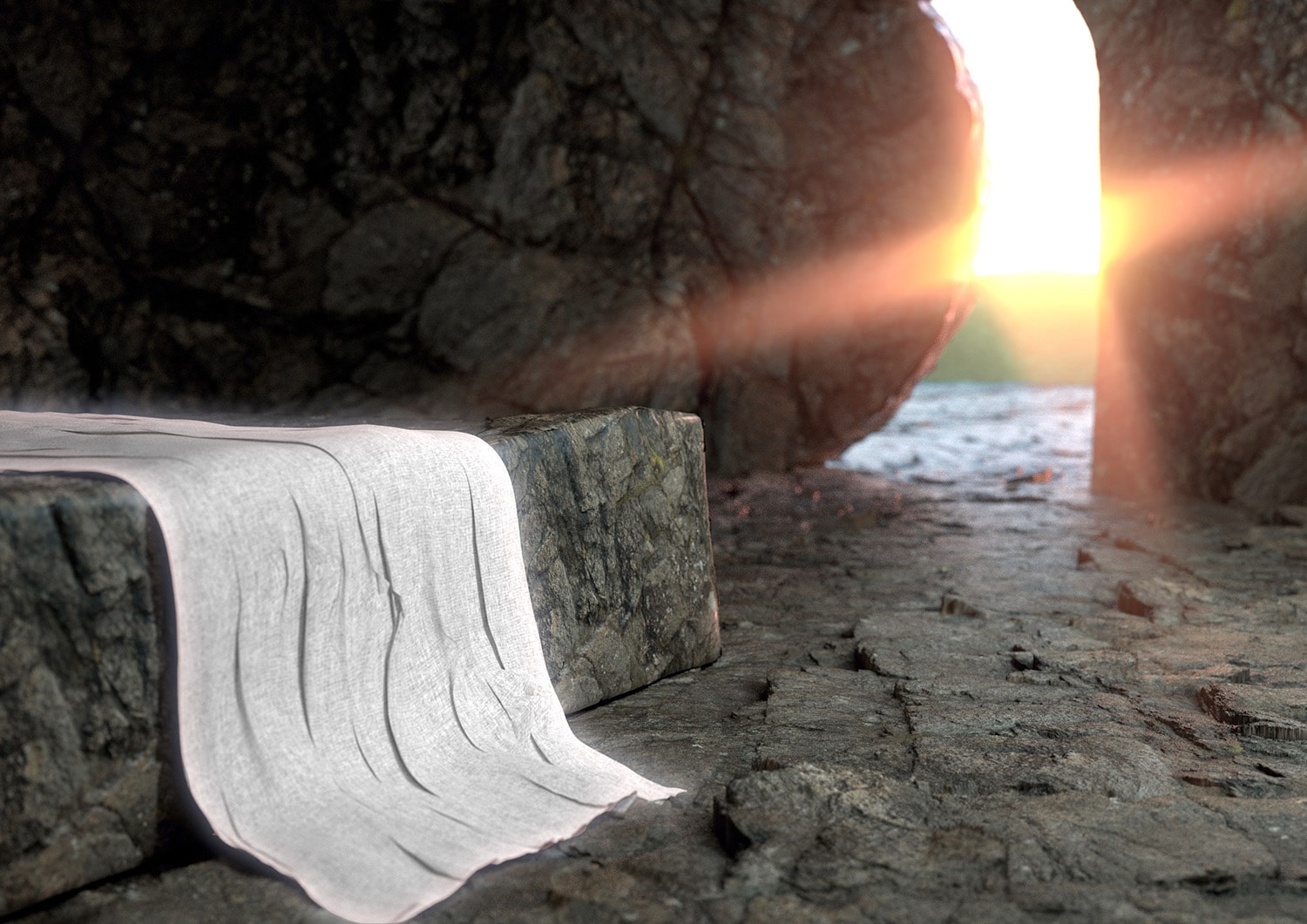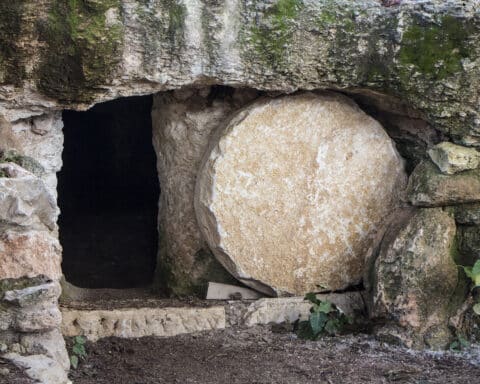“Christ is risen from the dead / by death he trampled death / and to those in the tombs / he granted life.”
In the Eastern Church, both Catholic and Orthodox, Christians greet the Resurrection of our Lord with this hymn, sung over and over and over again. It is, on the surface, a reference to John 5:28-29, where, shortly before Jesus multiplies the loaves and fishes, walks on water, and declares himself the Bread of Life, he tells those who refuse to believe in him that “the hour is coming in which all who are in the tombs will hear [the voice of the Son of Man] and will come out, those who have done good deeds to the resurrection of life, but those who have done wicked deeds to the resurrection of condemnation.”
Jesus spoke literally, and, as Matthew tells us in his Gospel, at Christ’s death, “The earth quaked, rocks were split, tombs were opened, and the bodies of many saints who had fallen asleep were raised. And coming forth from their tombs after his resurrection, they entered the holy city and appeared to many” (Mt 27:51-53). Yet, from the earliest days of the Church, Christians have read Jesus’ words in John 5 figuratively as well: Those in the tombs include each and every one of us who, through the sin of Adam and our personal sins, has separated ourselves from God. “For,” as St. Paul tells us in Romans, “the wages of sin is death, but the gift of God is eternal life in Christ Jesus our Lord” (v. 6:23).
Jesus’ death is sufficient
This is the good news of the season we are entering: Christ died for our sins and has risen from the dead, and if we have united ourselves to him in his death, we, too, have risen to new life. As St. Paul triumphantly cries, “Death is swallowed up in victory. Where, O death, is your victory? Where, O death, is your sting?” (1 Cor 15:54-55).
The work of our salvation has been completed; all that remains is for us to unite ourselves to Christ. For those who do, the world has been remade; the grave can no longer hold us. In the words of the Nicene Creed, which we recite at every Sunday Mass, we “look forward to the resurrection of the dead, and the life of the world to come.” And the remarkable thing is that the world to come is, in a sense, already here. In that world, we will live forever in the presence of Christ; but here and now, his presence lives in the midst of us, in the Sacrament of the Eucharist, his own body and blood, under the forms of bread and wine, given to us to unite us to his death so that we may rise, not just on the last day but here and now to new life in him.
For now, our Lenten journey has ended, and we rejoice once again in a world made new. The same Word of God who created the world has recreated it through his sacrifice on Calvary, the same sacrifice offered on the altar at every Mass in every Catholic Church on every day throughout the entire world. We have been given a great gift, the remission of our sins and life eternal, if only we will accept it. It seems too simple: Like the leper Naaman in 2 Kings 5, we expect God to ask us to do something more. But his Son, Jesus Christ, has done all that is necessary. His death is sufficient, and more than sufficient, to grant us new life. All that we need to do is to accept it with gratitude and humility and joy, and to eat his body and drink his blood, and we will, as he promised, have life within us, the life that death cannot take away.
As St. John Chrysostom wrote in his famous Easter homily, echoing the words of St. Paul in calling his congregation to hold fast to the joy of the Resurrection: “O death, where is your sting? O Hades, where is your victory? Christ is risen and you are abolished. Christ is risen and the demons are cast down. Christ is risen and the angels rejoice. Christ is risen and life is freed. Christ is risen and the tomb is emptied of the dead: for Christ, being risen from the dead, has become the Leader and Reviver of those who had fallen asleep. To Him be glory and power for ever and ever. Amen.”





